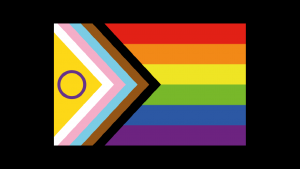
Sermon #62 (3rd July 2022 at Essex Church / Kensington Unitarians)
As I mentioned at the start of today’s service, this weekend marks 50 years of Pride in London, and I’m pleased to report that a small group of Unitarians had a place in Saturday’s big parade, waving our own flags to proclaim our progressive religious witness, and shout about our commitment to equality. We Unitarians are rightly proud of our track record, having been a bit ahead of the curve in the past, particularly in campaigning for same-sex marriage. This year our Unitarian General Assembly overwhelmingly voted to affirm trans rights and endorse self-declaration of gender identity – great news! – but it’s important not to think that’s ‘job done’ and rest on our laurels.
On Friday, one day before the main Pride in London parade, a number of those brave and righteous people who had been present at the first ever march back in 1972 gathered to retrace their route exactly 50 years on. One of those people, the activist Peter Tatchell, spoke of their intentions in a way that I found quite inspiring, and I want to share his words with you. He said ‘We are holding a commemorative Pride march for the LGBT+ community – totally open, egalitarian, grassroots and human rights-focussed. It mirrors the informality and spontaneity of the first Pride march in 1972. [The veterans’ march is] an attempt to reclaim the radical roots of Pride, which was both a celebration and a protest. Gay Liberation Front, which organised the first Pride, saw itself as part of a wider social movement for the liberation of all oppressed people. We stood in solidarity with women’s liberation, the black and Irish communities, and working class people and trade unions. Our goal was not limited to the narrow horizon of equal rights. GLF did not want equality within what we saw as an unjust flawed society. We wanted to change society, not adapt and assimilate into it. We questioned everything about what straight society said about us as queer people and also the social dictates with regard to how men and women were supposed to look and behave.’
Pride is about so much more than getting dressed up, putting your glittery nail varnish on, and having a big party once a year (as marvellous as that is – for those who have got the energy for it – it’s been a few years since I’ve been but memories of my first, in the mid-90s, are vivid and thrilling still). Pride, at its root, was radical in its intentions, and risky. It was about truth-telling. Challenging stifling social norms. It was about solidarity with oppressed people and striving for the liberation of all. Doesn’t that chime with our values? It’s the sort of call to action that gets me excited anyway.
One of the reasons I invited Gaynor to speak to us this morning was because it can sometimes be easy to run all those letters into one another – LGBTQIA+ – and easy to forget that behind all those letters are infinitely varied and marvellous people each with their own particular life story.
And Gaynor’s story highlights a few things we ought to pay attention to. First is the important reminder that, even now, LGBTQIA+ people can’t really take it for granted that they’ll be truly and unconditionally welcomed in religious communities. In fact, I suspect most would presume they would be harangued, rejected, or condemned in church. Things are getting better in more and more denominations but the inclusion is often a bit half-hearted. Secondly, Gaynor reminds us even supposedly LGBTQIA+ centred organisations sometimes make distinctions which leave bi people feeling like second-class citizens, or excluded altogether. Similarly, and tragically, there are so-called ‘LGB’ groups which demonise trans people, and others which disregard asexuals. Even within the community there is sometimes a pressure to conform. And thirdly, as Gaynor said, ‘I am not a whatever’. It is so important that we see and hear each individual person, see them as unique and beloved, and affirm their identity, as they understand it and communicate it to us.
One thing we can learn from the LGBTQIA+ community, at its best, is a sense of ‘Unity in Diversity’. We must resist the (well-meaning) temptation to say ‘we’re all the same really’ – and instead be ready to hear each other’s stories, to pay attention, and be glad of our quite astonishing variety – of identities and life experiences, of dreams and desires, of advantages and disadvantages. Let’s examine, or suspend, our default assumptions, and approach each other with curiosity and respect. Let’s learn from each other’s unique perspectives and show solidarity for the struggles we each face. And, in so doing, let us truly live out our most cherished principle, by affirming the inherent worth and dignity of each and every person we meet. May it be so, for the greater good of all. Amen.
Sermon by Jane Blackall
An audio recording of this sermon is available:
A video recording of this sermon is available:
